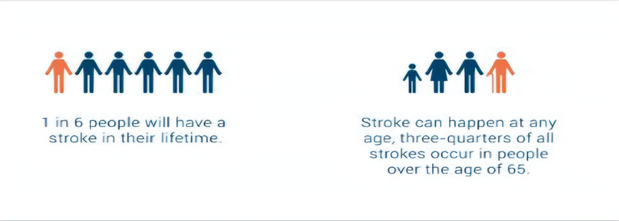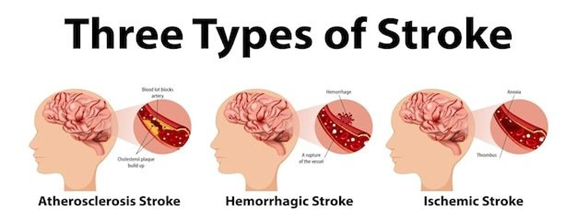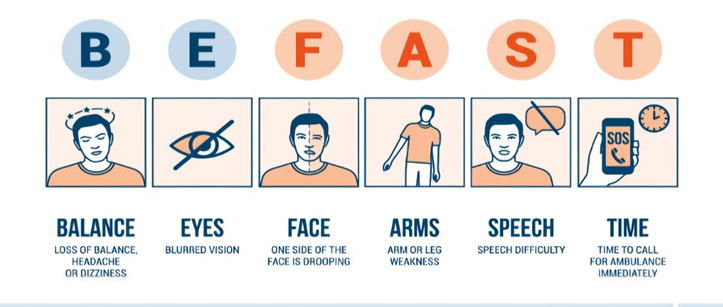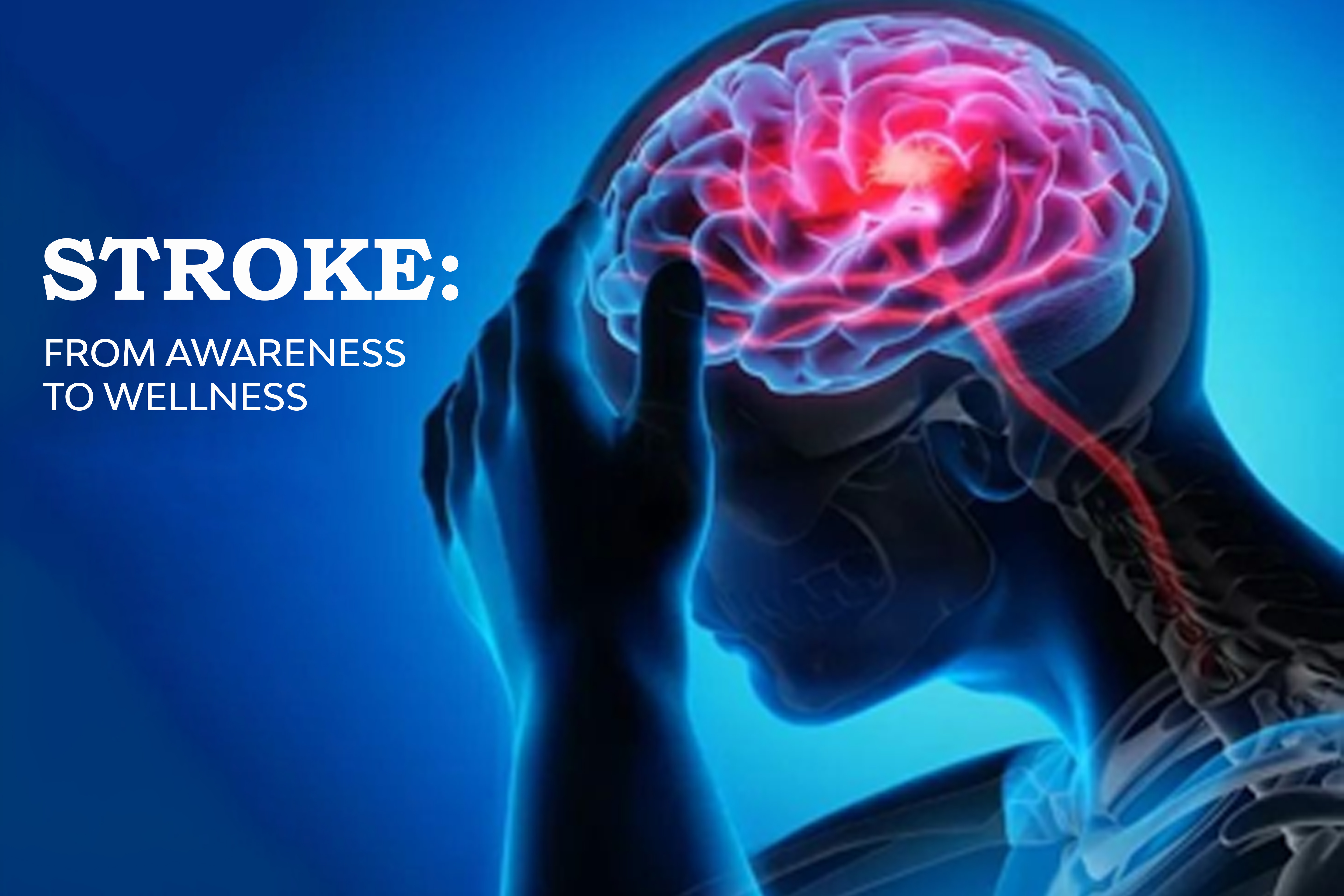STROKE: FROM AWARENESS TO WELLNESS
In every 20seconds , a new
stroke case is reported in India accounting to over 1.5 million new cases each
year; making it the 4th leading cause of death and 5th leading cause of
disability.
29th of October 2025 being the World Stroke Day, themed as ' EVERY MINUTE COUNTS'; raise our awareness about the prevention, early detection and treatment of stroke to Act Fast and Heal Smart as 80% of strokes are preventable and with the help of holistic treatment approaches one can improve the quality of life.
UNDERSTANDING STROKE

A sudden interruption of blood
flow to a part of the brain resulting in brain cell death as of poor oxygen
rich blood supply leads to Stroke. This results in non-functioning of the body
part controlled by the specific part of brain.
Brain cells die rapidly when
blood flow is blocked and in a minute up to 1.9million brain cells die if
medical attention is not given on time.
TYPES OF STROKE

- - Atherosclerosis stroke: occurs when the flow of blood to
brain is blocked by plaque build-up in arteries.
- Haemorrhagic stroke: when a weakened blood vessel ruptures and spills blood into the brain.
-
- Ischaemic stroke: when a clot or mass blocks a blood vessel,
cutting off the blood flow to a part of the brain.
RECOGNISE THE WARNING SIGNS

Stroke over left side of the brain will affect the right side of the
body while a stroke on the right side of the brain will affect the left side of
the body.
Left sided brain
stroke symptoms (HEMIPLEGIA)
-
Paralysis or weakness on the right
side of the body.
-
Speech difficulty
-
Difficulty with logic, judgement
and abstract thinking.
Right sided brain
stroke symptoms (HEMIPLEGIA)
-
Paralysis or weakness on the left side
of the body.
-
Vision problems and difficulty with
awareness.
-
Problems with balance and
coordination.
-
Behavioural changes like impulsive
and attention deficit.
Brain Stem stroke
symptoms (QUADRIPLEGIA)
-
Both sides of the body affected
-
Severe paralysis with only eye
movements.
INSIGHTS FROM
AYURVEDA
Paralysis of the body due to stroke is correlated to PAKSHAGHATA /
PAKSHAVADHA in Ayurveda.
It comes under the category of Vata Vyadhi – diseases caused due to
vitiation of Vata dosha (one among the 3 functional principles in the body)
characterised by motor or sensory failure in any side of the body.
Symptoms
-
Loss of motor functions (right/
left) causing inactivity.
-
Loss of sensory functions (right/
left) causing loss of sensation.
-
Slurring / loss of speech.
-
Spasticity (contractions) over
hands and legs.
MAJOR RISK FACTORS
-
Hypertension
-
Diabetes Mellitus
-
Obesity
-
Stress
-
Dyslipidaemia
-
Sedentary lifestyle
-
MEN have a higher incidence rate of stroke while WOMEN
have a higher lifetime risk and are more likely to die from stroke (about 55,000
more women die from stroke each year than men)
PREVENTION IS THE BEST CURE
A healthy lifestyle alterations plays the main role.

Few daily routines from AYURVEDA
-
Full body Oil massage (daily)
-
Single drugs like Brahmi, Ashwaganda, Sankhapushpi etc. to
improve brain and nerve functions.
-
Regularly do Pranayama - Yoga - Meditation
-
Follow gut cleanse or detox once in every 2weeks
POST STROKE MANAGEMENT
-
Emergency care is the earliest intervention.
-
Recovery and rehabilitation depends upon the rate of
disability.
-
Protocols in General
-
Physiotherapy
-
Speech therapy
-
Occupational therapy
Ayurveda Panchakarma treatments help with:
-
Nerve Rejuvenation
-
Improved circulation
-
Balances the body factors/ elements
-
Regeneration of cells and tissues
Treatment includes both internal medications and external therapies
like:
-
Snehana (oleation therapy)
-
Swedana (foementation therapy)
-
Nasyam ( nasal medication)
-
Virechanam ( purgation)
-
Vasti ( enema therapy)
-
Jalookavacharanam (leech therapy)
-
Moordha thailam ( oil therapy for head)
Encourage the patient for fast recovery with patience and mindfulness. A holistic treatment protocol results in good rehabilitative improvement. Likewise a collective approach of creating awareness, acting fast with warning signs and following a holistic and mindful lifestyle can make stroke manageable.
Dr. Sreesha Sajeevan (B.A.M.S, CRAV, CSM)
 en
en
 العربية
العربية









